SharePoint Online Collection
SearchBlox includes a crawler to index the shared documents of selected sites of an SharePoint Online account. SharePoint Online Collection can be created by following the following steps.
Prerequisites
- Create an App in Microsoft Azure to get Tenant ID, Client ID, Client Secret, Redirect URI and Region.
- Provide the Required Permissions to Microsoft Graph API, mainly on Sites, Files and Directory.
- Guidelines to create an APP and provide permissions
Creating SharePoint Online Collection
You can Create a SharePoint Online Collection with the following steps:
-
After logging in to the Admin Console, select the Collections tab and click on Create a New
Collection or "+" icon. -
Choose SharePoint Online Collection as Collection Type.
-
Enter a unique name for the collection (for example, Sharepoint).
-
Enable/Disable RAG, enable for ChatBot and Hybrid RAG search.
-
Choose Private/Public Collection Access and Collection Encryption as per the requirements.
-
Choose the language of the content (if the language is other than English).
-
Click Save to create the collection.
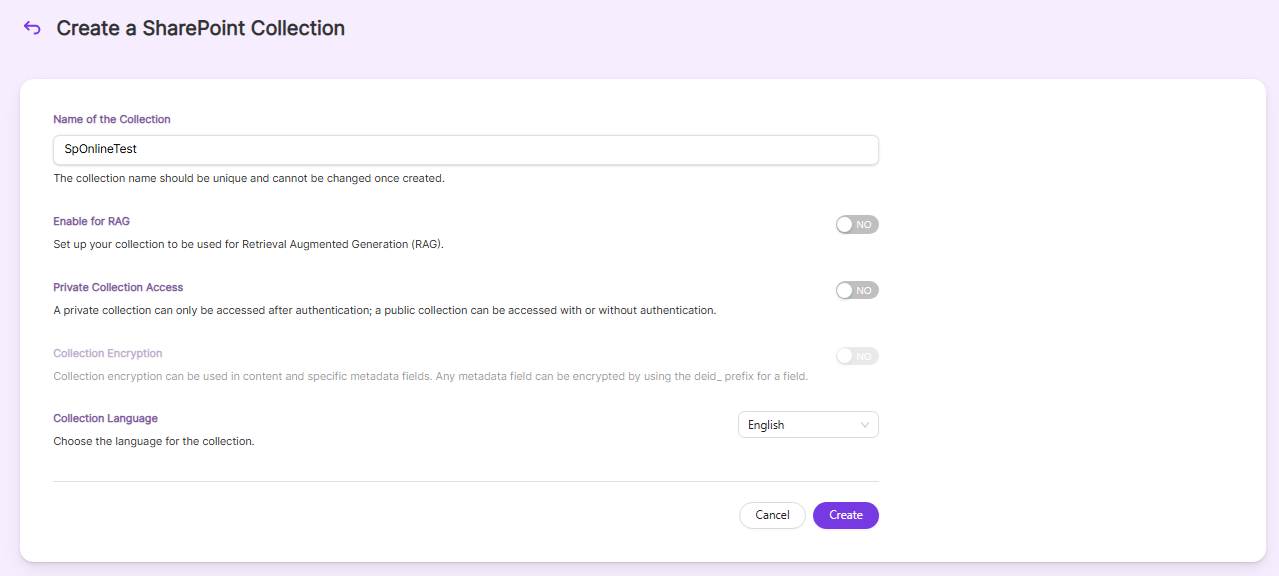
- Once the SharePoint Online collection is created you will be taken to the Authentication tab.
Settings Tab
| Field | Description |
|---|---|
| Tenant ID | A Tenant ID (tenant identifier) is a unique identifier or alias for the tenant and is based on the tenant name. |
| Client ID | The Client ID is the unique Application (client) ID assigned to your app by Azure AD when the app was registered. |
| Client Secret | A Client Secret is a string value your app can use in place of a certificate to identity itself. |
| Region | Region is the area or country code of the Microsoft Azure Availability zone. |
| Redirect URI | A Redirect URI, or reply URL, is the location where the authorization server sends the user once the app has been successfully authorized. |
Client Secret:
- Client Secret is the value not the Secret ID.
- Provide Tenant ID, Client ID, Client Secret, Region and Redirect URI, you can find those values in Overview of created APP in Microsoft Azure.
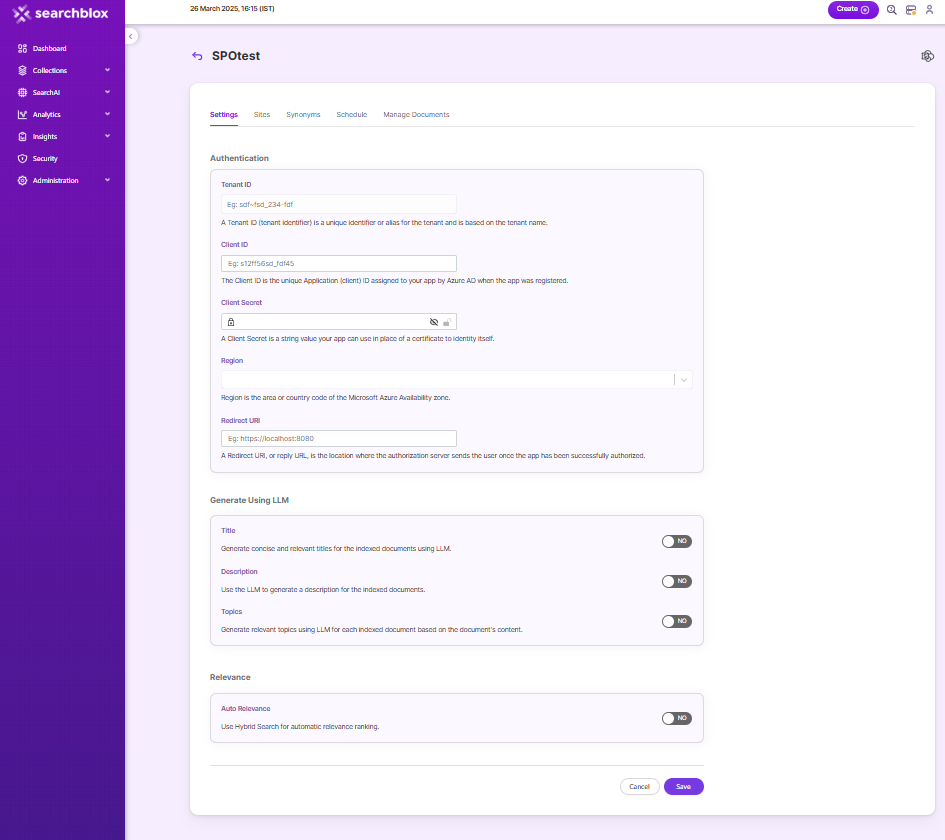
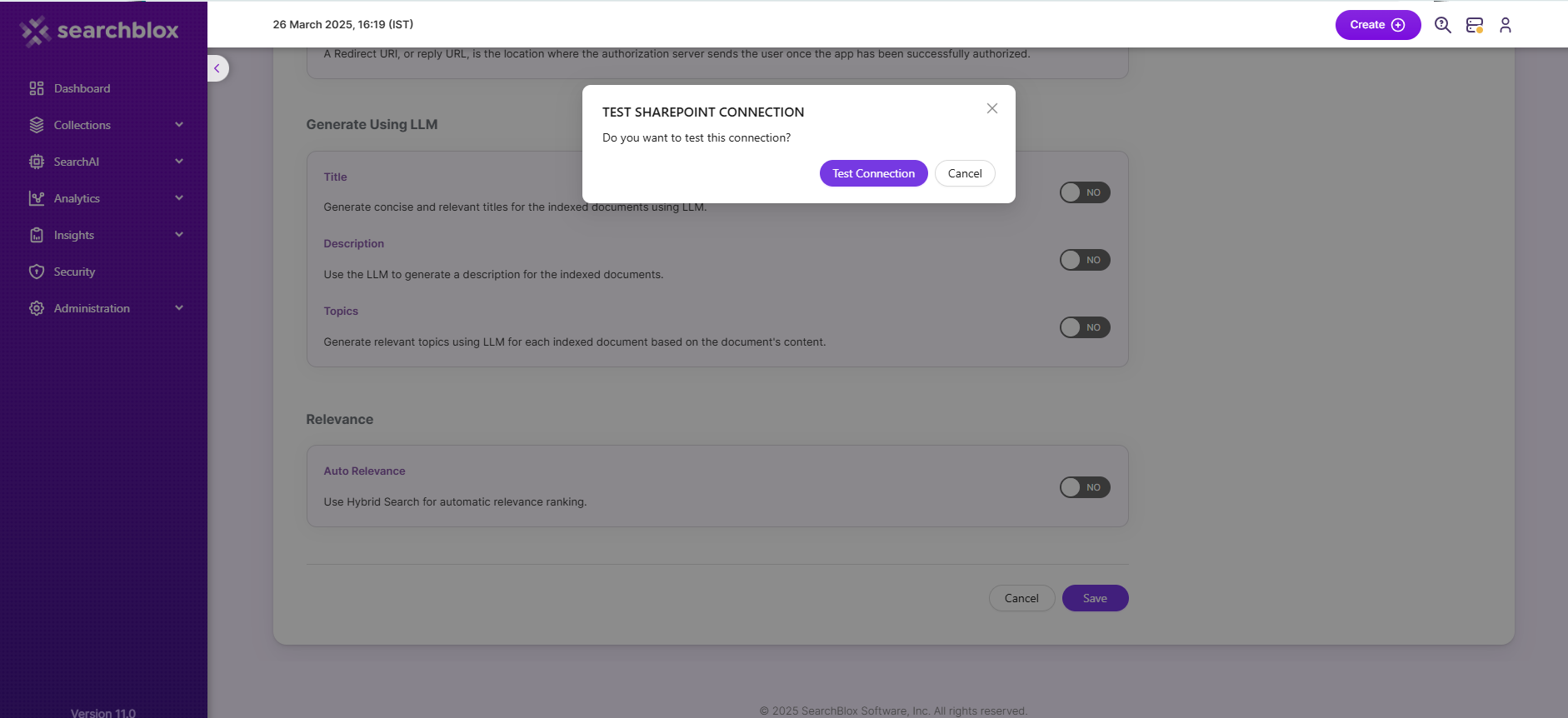
- Choose the settings for
Generate Using LLMandHybrid Search.
| Settings | Description |
|---|---|
| Title | Generates concise and relevant titles for the indexed documents using LLM. |
| Description | Generates the description for indexed documents using LLM. |
| Topic | Generates relevant topics for indexed documents using LLM based on document's content. |
| Auto Relevance | Enable/Disable Hybrid Search for automatic relevance ranking |
- Click on
Savebutton and Click onTest Connection.
Sites Tab
Once Authentication is successful, you will be taken to Sites Tab, where you can find the list of Sites from your organization SharePoint Online Account.
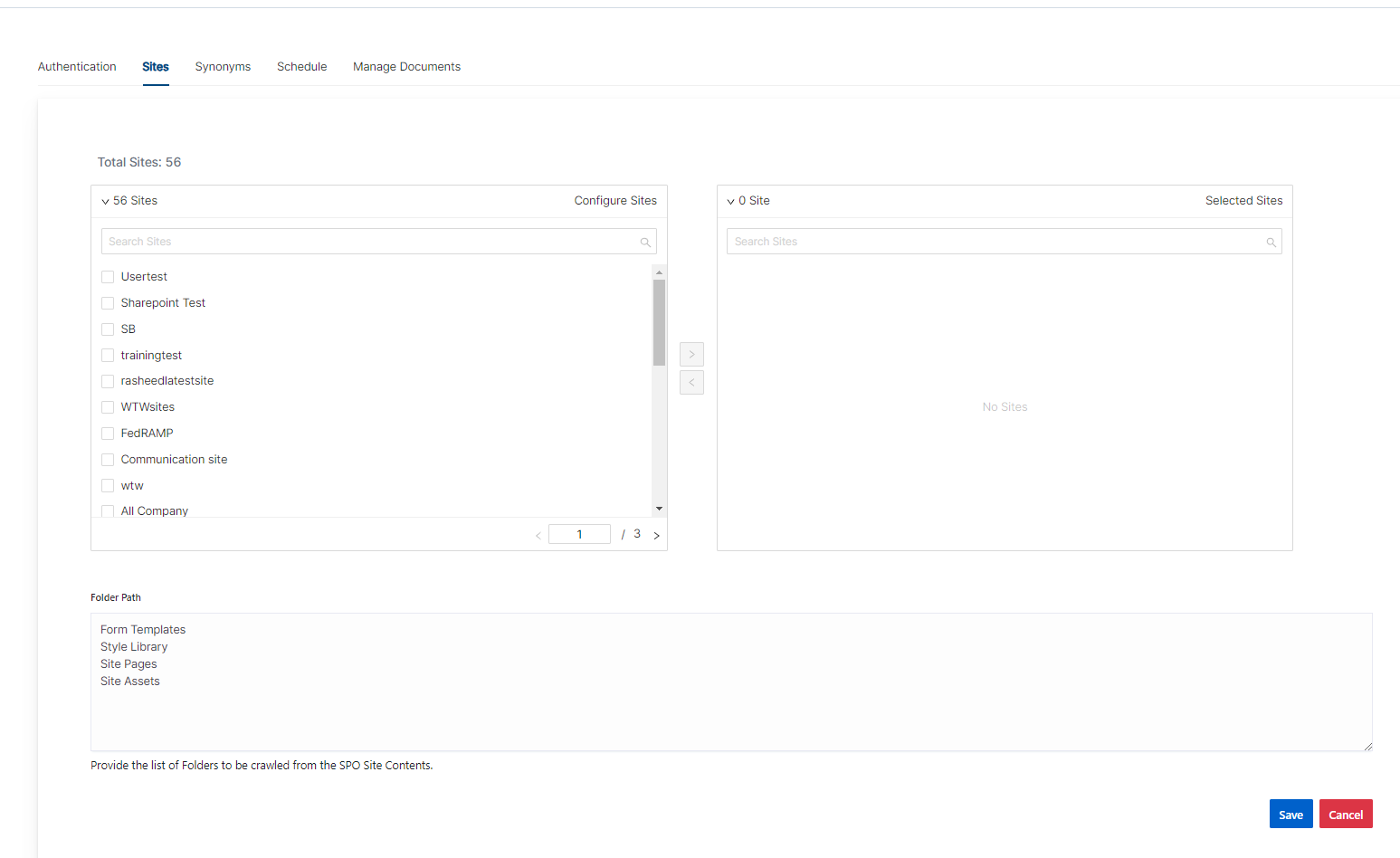
Configure Sites
- Select the Sites, which needs to be indexed (Make sure the user has access to those sites).
- Displays the total Sites of an organization.
- Displays the selected Sites and selected Sites can be de-selected too.
- After selecting or deselecting Sites, Click on
Save.
Schedule and Index
SharePoint Online collection should be indexed only on accessed Sites. Sets the frequency and the start date/time for indexing a collection. Schedule Frequency supported in SearchBlox is as follows:
- Once
- Hourly
- Daily
- Every 48 Hours
- Every 96 Hours
- Weekly
- Monthly
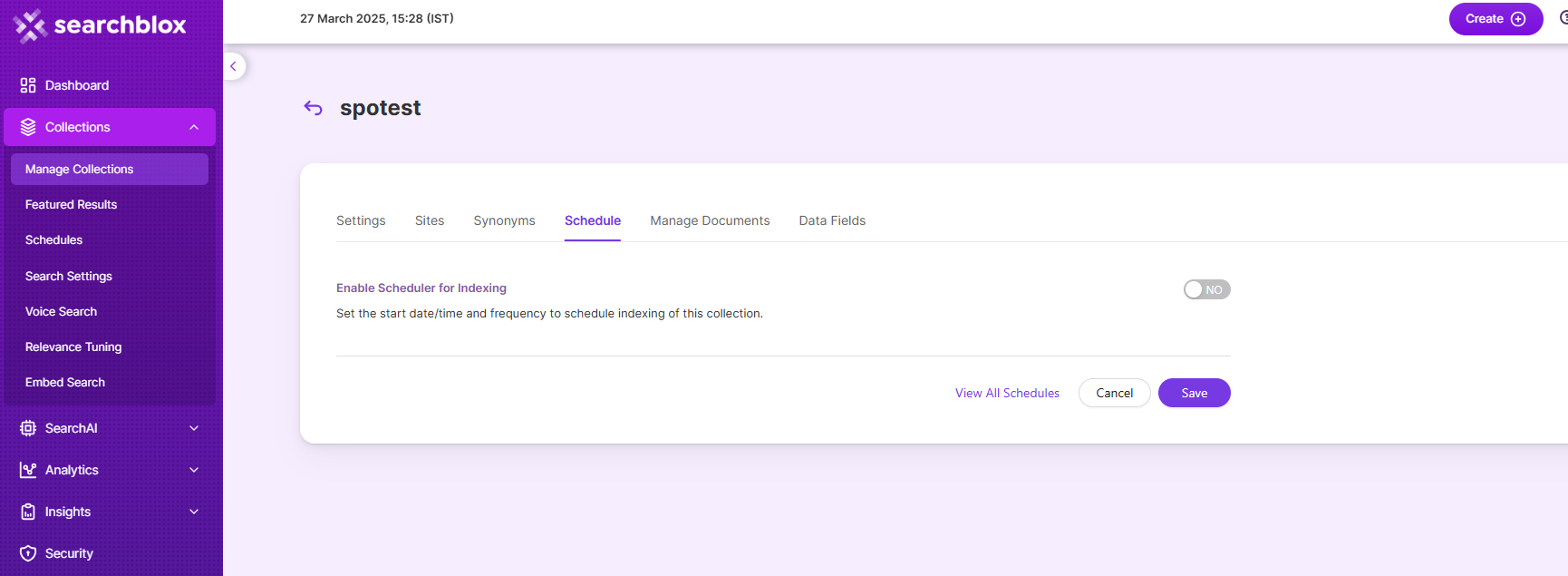
The following operation can be performed in SharePoint Online collections
| Activity | Description |
|---|---|
| Enable Scheduler for Indexing | Once enabled, you can set the Start Date and Frequency |
| Schedule | For each collection, indexing can be scheduled based on the above options. |
| View all Collection Schedules | Redirects to the Schedules section, where all the Collection Schedules are listed. |
Manage Documents Tab
-
Using Manage Documents tab we can do the following operations:
- Filter
- View content
- View metadata
- Refresh
- Delete
-
To delete a file from your collection, enter the file path and click "Delete".
-
To see the status of an indexed file, click "View Metadata".
Data Fields Tab
Using Data Fields tab we can create custom fields for search and we can see the Default Data Fields with non-encrypted collection. SearchBlox supports 4 types of Data Fields as listed below:
Keyword
Number
Date
Text
- Once the Data fields are configured, collection must be cleared and re-indexed to take effect.
To know more about Data Fields please refer to Data Fields Tab
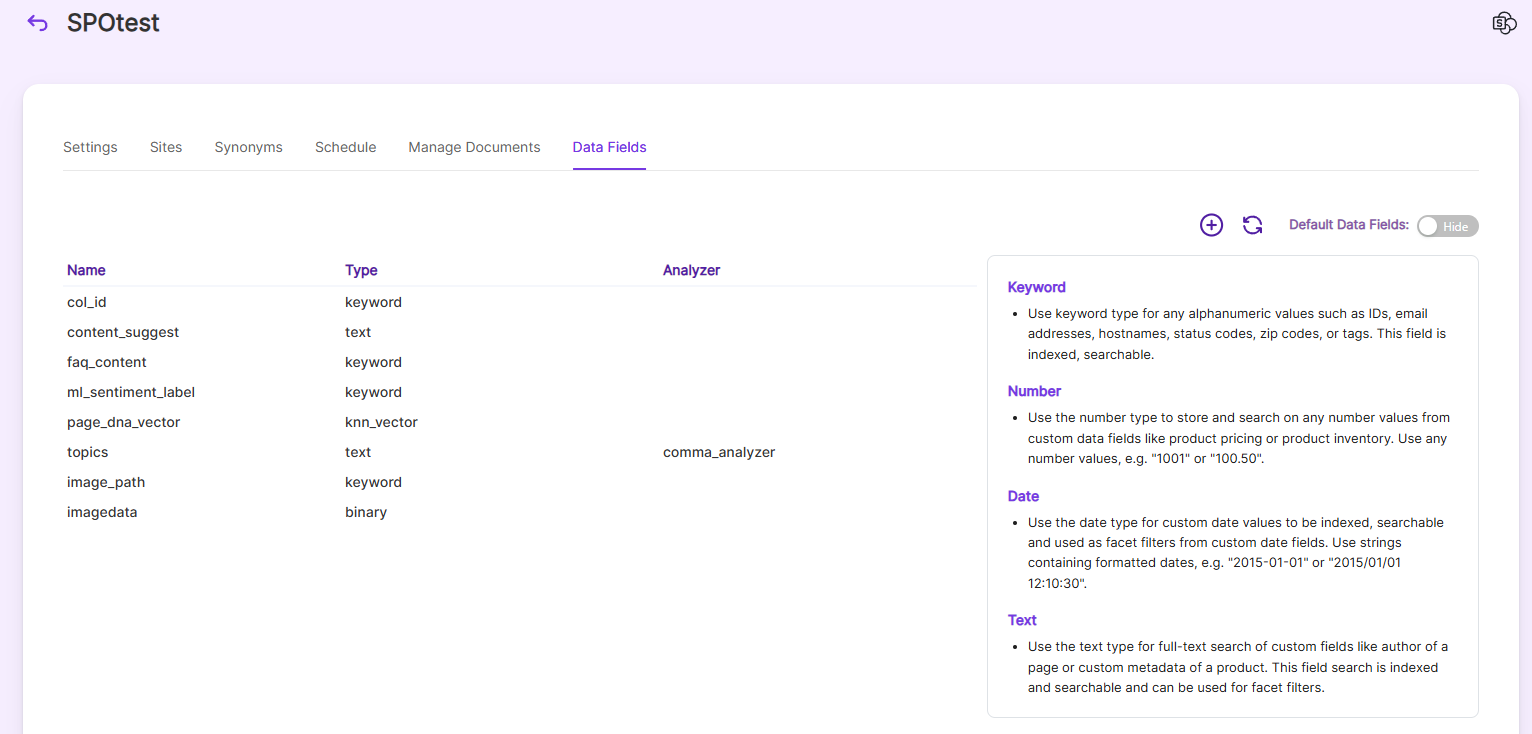
Updated 9 months ago

